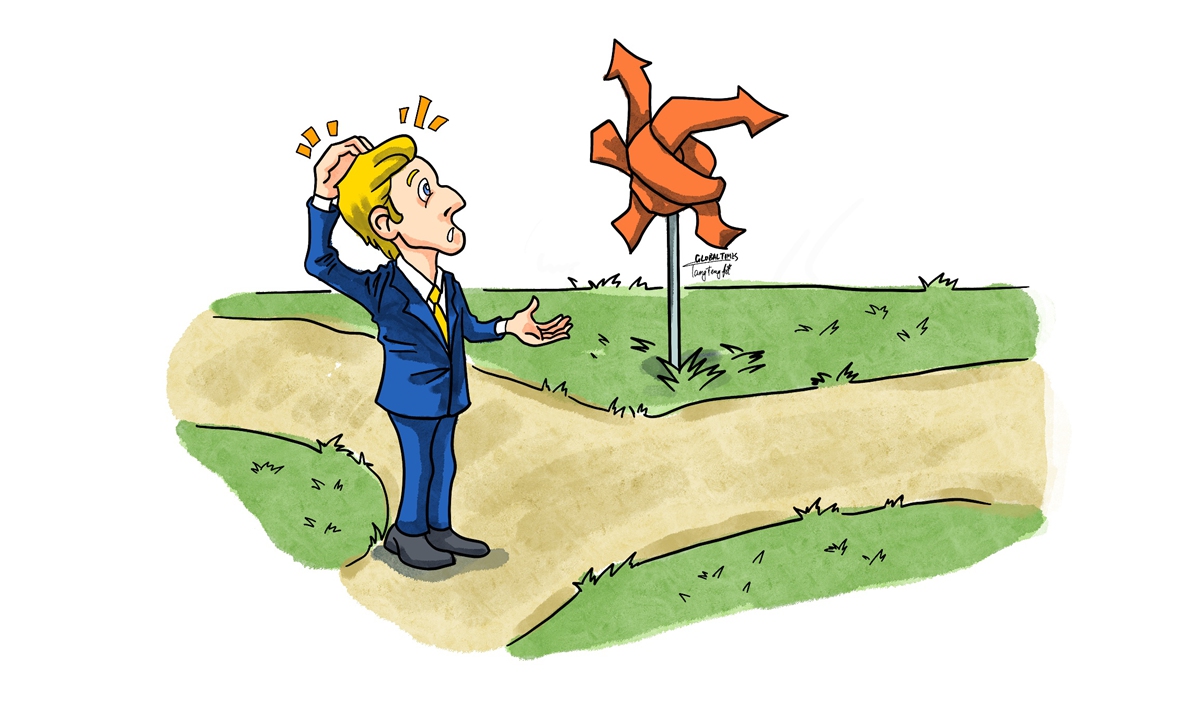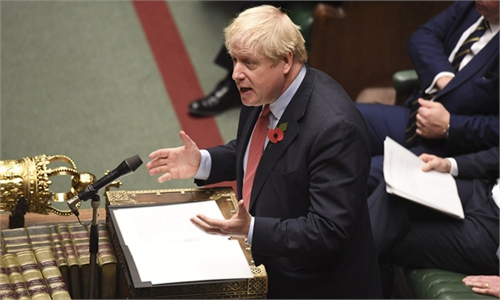
Illustration: Tang Tengfei/GT
In recent years, it seems like the West is paying more attention to the Indo-Pacific region. Before 2020, only France among the EU countries had developed an Indo-Pacific strategy. Then last September and November, Germany and the Netherlands followed France's steps. And last Tuesday, British Prime Minister Boris Johnson claimed that Britain will engage more deeply in the Indo-Pacific.
By getting themselves involved in the Indo-Pacific, these Western countries are aiming to achieve a balance and hedge effects in the region. They therefore want to influence, control, and shape the order in the region through so-called offshore balancing strategy. They want to re-consolidate their dominant positions with global diplomacy and security.
In fact, Western countries are now proposing their Indo-Pacific strategies with a very important consideration: They are trying to replace the widely-accepted concept of the Asia-Pacific with the Indo-Pacific. Traditionally, China has been at the center of the Asia-Pacific strategy. However, in the West's Indo-Pacific strategy, the focus of the Western countries has shifted toward other countries such as Japan and India.
In this way, the West's involvement may intensify existing conflicts in this region. For example, China's relations with its neighbors were relatively stable before. Whatever conflicts they may have had were controllable. But conflicts may become complicated with the intervention of more external powers. China is a major economic and trade partner for many countries in the Indo-Pacific region. However, as some countries outside the region, especially from the West, continue to develop economic ties and trade with those in the region, there will be changes in the allocation of resources and the flow of wealth - in the short term at least.
Meanwhile, the West will not stop raising political and security issues with these countries. This will complicate previous situations. As a result, regional conflicts may escalate, and new conflicts may even appear if existing ones are not properly handled.
Moreover, for the West, adopting an Indo-Pacific strategy is a way out of its own troubles. After all, in the transatlantic relationship between Europe and the US, there are still certain conflicts that will be difficult to be resolved in the short term. By engaging in regions such as the Indo-Pacific, in fact, the West is trying to shift the conflicts outwardly in order to avoid further intensifications of its own internal conflicts. To a certain extent, this may temporarily mitigate conflicts, but it will not fundamentally solve problems between Europe and the US. As the Russian news agency RIA Novosti commented, "The Atlantic Age is ending - and it will not be able to preserve itself by renaming itself the 'Indo-Pacific.'" Ultimately, it is up to the West to find the solutions to its problems, not just to turn them into problems in other regions.
It is also not necessarily a good thing for Europe, which is seeking strategic autonomy, to get involved in the Indo-Pacific affairs.
Based on Europe's interpretation, strategic autonomy means it has the room to operate autonomously in areas such as security and policy. For European countries, the Indo-Pacific strategy will have a two-sided effect. If Europe can play a role in shaping the order in this region, and Europe's intervention can really help address the problems in the region without being influenced by the US, then this will demonstrate Europe's strategic autonomy.
But if Europe moves too close to the US, or it fails to prove it can play a role in a way that can be both recognized by the international community and the Indo-Pacific countries, Europe will lose its so-called strategic autonomy.
For instance, some European countries are sending warships to the Indo-Pacific region to safeguard the so-called freedom of navigation as an important manifestation of their Indo-Pacific strategies.
If those European countries' patrols in the region are not different from the ones conducted by the US, then their involvement and intervention in the region can easily be taken as a move from a strategic appendage of the US. In this way, Europe will not only fail to establish its strategic autonomy, but also will further lose its policymaking independence. This is what European countries need to be very vigilant about.
The author is director of the Department of European Studies, China Institute of International Studies. opinion@globaltimes.com.cn

